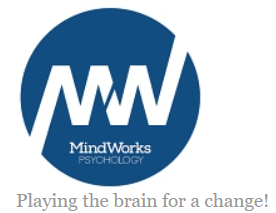
Stop Eating Disorders Or Get Relief With Specialized Treatment
Perhaps, you know to well the over emphasis on beauty and body in our culture, driven by the media and advertisers drawing attention to and interest in the pursuit of ideal body, and weight. The diet industry is a multi-billion dollar industry, gaining everyday as individuals grow more confused and desperate. With all the focus on getting thin and the often confusing messages, it is difficult to know for sure if you have an eating disorder. Further, it’s not easy to admit that you have a problem or ask for help when something is wrong.
I believe awareness is the key to recognizing whether you have a problem with food, eating, body or self image, and to get yourself ready to begin moving past it.
You want to focus on finding the right help and getting treatment that works for you. Having an obsession with food and/or body is not necessarily about how your body actually looks. In fact, a distorted body image is a symptom of an eating disorder, meaning you cannot accurately tell what your body truly looks like. It is similar to being color blind and not being able to see or distinguish the colors as clearly as someone who is not color blind and has no perceptual distortion interfering. When it comes to the brain’s response, it’s all about perception.
At the core of eating disorders, is the difficulty with the brain communicating with body and regulating of emotions and physiology. As a matter of fact, almost all mental health problems involve mood, thought and behavior issues that can be linked back to brain processing glitches between the rational thinking brain and primitive-emotional brain systems. Relief from an eating disorder is possible, especially when the approach works with the whole brain in mind.
I’ve specialized in the treatment of eating disorders for over 30 years. I also see a high incidence of trauma and post-traumatic stress disorders. I have been utilizing a rapid trauma resolution approach with abuse survivors and have incorporated many techniques from Dialectical Behavioral Therapy, Mindfulness based Stress Reduction and Cognitive Behavioral Therapy. My clients report a very dramatic and marked improvement in emotional regulation abilities. They learn that their eating disorder has served some adaptive purpose, even if it is not often consciously clear. I’ve pioneered use of Emotional Pain Intervention techniques and tools to reach the emotional brain and stop emotional eating.
Recovery From Eating Disorders
There is no set recovery time. I have seen individuals who come to treatment early and recover in a few weeks and I have seen others struggle with eating disorders for years, so the recovery process may be slower if it is confused with aspects of their identity. A relapse is at times common with eating disorders, at risk periods involve certain life transitions such as leaving home, new marriage, having children, divorce, or death of loved ones. Relapses may involve getting into strict rules for eating or compensating for making so called ‘mistakes in eating’ and feeling bad about oneself or guilty.
Recovery from eating disorders promotes a model of healthy, balanced relationship with food. It is often stated by eating disorder professionals-that “an eating disorder is not about the food.” Of course not eating makes it difficult for the brain and body to function optimally, so therefore, “it is about the food.” Treatment addresses emotions and emotional regulation issues, identity and body image concerns and there is also exposure to feared or problem foods. Clients will develop an increased awareness to triggers that drive the emotional state, including primary emotions (fear, anger, grief), traumatic memories, sensations such as hunger, pain and or physiological changes in the body.
Recovery looks like a regulated healthy eating plan of at least three meals a day and snacks. Clients learn that eating is a complex interaction between mind, body and brain and they gain awareness in these areas. Your brain runs your body and craving and wanting food can become problematic, although it is natural and normal for the brain to be drawing you toward things. Often, automatic impulses can go unchecked by the higher, intentional part of the brain, leading to emotional overeating. For others, eating has been used to control mood and has taken on a more automatic, compulsive habit cycle that needs to be interrupted.
Most people with eating disorders can be treated on an outpatient basis after a comprehensive evaluation including medical workup and labs by their primary care physician. I utilize a multi-disciplinary treatment team approach where I work with patient’s primary care physician, a registered dietitian or nutrition therapist often if there are other pre-existing mental health disorders, a psychiatrist is also a part of the treatment team.
Often Brain-based coaching is a great option for stress and emotional eating. Coaching is great for developing healthy habits for optimal health.

